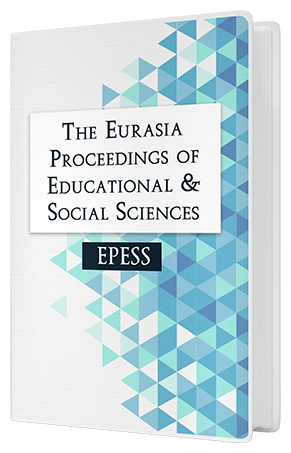Qasidas of ‘Amr b. Sâlim al-Khuzâ ‘î and Ḥassan b. Thâbit on the Eve of the Conquest of Mecca
DOI:
https://doi.org/10.55549/epess.1381973Keywords:
Qasida, ‘Amr b. Sâlim al-Khuzâ ‘î, Khuzâ ‘a, Ḥassan b. Thâbit, Conquest of MeccaAbstract
Arabs have expressed their joys, sorrows, praises and satires more effectively with poetry throughout history. Thus, the poets of the tribes were seen as the most respected people after the chief of the tribe. ‘Amr b. Sâlim al-Khuzâ‘î is one of the poets of the Khuzâ‘a tribe. In the Hudaybiya peace treaty between Muslims and Qurayshi infidels, the Khuzâ'a tribe took place as an ally of the Muslims, while the Banu Bakr tribe took place as an ally of the Qurayshi infidels. Some people from the Banu Bakr tribe, with the help of the notables of the Qurayshi tribe, violating the peace treaty killed 23 people in their raid on the Khuzâ‘a tribe. ‘Amr b. Sâlim al-Khuzâ'î, having come to Medina with 40 people from his tribe, recited his 8 couplet qasida in the presence of the Prophet to complain about the pain they experienced and to respond to the attack. On this event, the Prophet started an expedition against the Qurayshis who broke the agreement, which would result in the conquest of Mecca. During this preparations of the expedition, one of the prophet’s poets, Ḥassan b. Thabit also wrote an 6 couplet qasida in which he denounced the attack on the Khuza‘a tribe and encouraged the Muslims to prepare for the expedition. These poems which arouse deep emotions, to convey messages of encouragement and threat, to buid a collective consciousnes and to act as a trigger to change the course of history highlight the impact and its indispensable role of poetry as an instrument of communication and war during the era of Sadr al-Islam. In this study these two qasidas which which has an important place in the history of Islam, are analyzed.Downloads
Published
Issue
Section
License
Copyright (c) 2023 The Eurasia Proceedings of Educational and Social Sciences

This work is licensed under a Creative Commons Attribution-NonCommercial-ShareAlike 4.0 International License.
The articles may be used for research, teaching, and private study purposes. Any substantial or systematic reproduction, redistribution, reselling, loan, sub-licensing, systematic supply, or distribution in any form to anyone is expressly forbidden. Authors alone are responsible for the contents of their articles. The journal owns the copyright of the articles. The publisher shall not be liable for any loss, actions, claims, proceedings, demand, or costs or damages whatsoever or howsoever caused arising directly or indirectly in connection with or arising out of the use of the research material. All authors are requested to disclose any actual or potential conflict of interest including any financial, personal or other relationships with other people or organizations regarding the submitted work.




